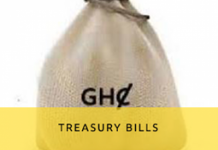Benjamin Nsiah, Executive Director of the Centre for Environment and Sustainable Energy, has strongly criticized the government’s newly approved GH₵1 fuel levy, describing it as regressive, uncreative, and harmful to already strained consumers.
In an interview with Citi Business News, Nsiah questioned the government’s continued reliance on petroleum taxes to fill financial gaps in the energy sector.
He noted that although the levy is expected to generate GH₵5.7 billion to support energy sector obligations, it simply perpetuates a cycle of ineffective fiscal measures that fail to address the sector’s deep-rooted structural problems.

“This approach is not only tired but unfair,” Nsiah said. “We’ve seen this before with the Energy Sector Levies Act (ESLA) and the Energy Sector Recovery Levy, none of which have provided lasting solutions. It’s not about raising more revenue; it’s about managing the funds already collected.”
Nsiah added that the repeated fuel levies have disproportionately burdened consumers, who have been paying additional costs since 2016 without any visible improvement in the energy sector’s debt situation.
He urged the government to shift focus from revenue generation to fiscal discipline and operational efficiency as the only sustainable way forward.
“For the Minister to say this won’t burden consumers is simply not accurate. Consumers have borne this burden for years, and without real reform, this trend will continue,” he cautioned.
These concerns come in the wake of Parliament’s approval of the Energy Sector Levies (Amendment) Bill, 2025, which authorizes the GH₵1 increase in petroleum product levies.
Finance Minister Dr. Cassiel Ato Forson stated that the levy aims to help clear $3.1 billion in energy sector arrears and raise an additional $1.2 billion to purchase fuel for thermal power generation in 2025. He insists the levy will not increase ex-pump fuel prices.
But this assurance has been met with skepticism. The Minority Caucus walked out during the approval process, describing the levy as inappropriate and alleging that the Majority lacked the constitutional quorum to pass the bill.
Nsiah insists that real reform will only come when the government stops using consumers as a “stopgap funding mechanism” and instead addresses inefficiencies along the energy value chain from procurement to power distribution.
“The problem is not revenue; it is management,” he concluded.
























































![[FREE FREE MONEY] Predict and Win a Guaranteed GH¢200 From Us EVERY WEEK](https://wordpress.ghanatalksradio.com/wp-content/uploads/2022/02/Predict-and-Win-Final-09-03-2021-218x150.jpg)
![[Predict & Win – 8th/Oct.] WIN A Guaranteed ¢200 From Us This Week](https://wordpress.ghanatalksradio.com/wp-content/uploads/2021/10/maxresdefault-16-218x150.jpg)
![[Predict & Win – 2nd] WIN A Guaranteed ¢200 From Us This Week](https://wordpress.ghanatalksradio.com/wp-content/uploads/2021/09/maxresdefault-50-218x150.jpg)
![[Predict & Win – 25th] WIN A Guaranteed ¢200 From Us This Week](https://wordpress.ghanatalksradio.com/wp-content/uploads/2021/09/maxresdefault-36-218x150.jpg)
![[Predict & Win – 18th] WIN A Guaranteed ¢200 From Us This Week](https://wordpress.ghanatalksradio.com/wp-content/uploads/2021/09/maxresdefault-23-218x150.jpg)







![[National cathedral] See full list of churches that have contributed since 2018](https://wordpress.ghanatalksradio.com/wp-content/uploads/2020/09/Ghana-National-Cathedral-GhanaTalksRadio-100x70.jpg)



